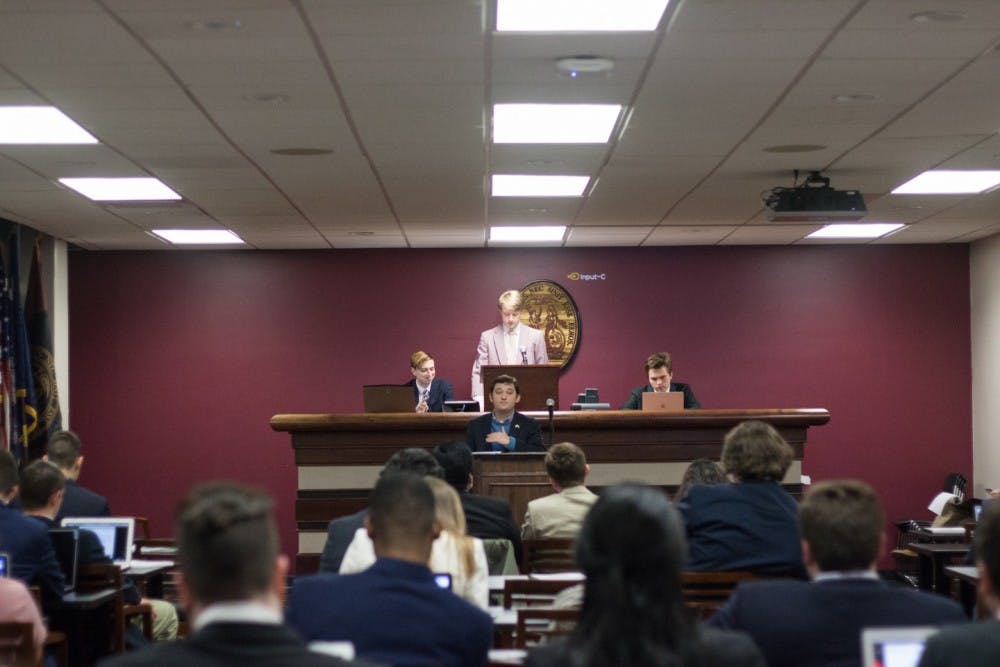The Student Senate voted to not override Student Body President Taylor Wright’s veto on bill 110(64), which would have given Student Government the ability to subpoena, after senator Patrick Greene, chairman of the judiciary committee, requested the Senate to override the vote.
The results were 31 votes in favor, 12 against, and one senator abstaining. 48 senators are currently in office, and the Student Senate needs a two-thirds majority — 32 votes in favor — to override a veto. One additional vote was needed to successfully pass the override. The one abstaining vote was by a senator confirmed the night of the vote.
The bill states that any member of Student Government, the student body, faculty and administration could be subpoenaed. Any committee of the Senate would have the ability to issue a subpoena if the Senate passes it with a majority vote.
In addition, the bill states that the Constitutional Council could issue subpoenas “germane to active cases, challenges, appeals, or other,” and the Elections Commission could issue subpoenas concerning "election violations or voter fraud."
Any individual or organization subpoenaed would have to appear before Student Government and present any documentation requested.
President Wright sent a memo to the Senate explaining the reasoning behind his veto.
“After conversations with [Constitutional Council and Elections Commission], along with several administrators, there is a large amount of concern,” Wright said. “I do not believe proper research was put into this bill, especially with the potential ramifications.”
Wright said the Constitutional Council and Elections Commission were not met with to discuss the bill, even though both would be deeply involved in possible future subpoenas if the bill were to pass. He further explained that there was no precedent in peer colleges.
Senator Greene argued that the Constitutional Council and Elections Committee are not part of the Senate or elected by the student body. He said that because the two groups do not make legislation or pass bills, their opinions on bill 110(64) should not affect the vote.
At least 14 other schools around the country allow some form of subpoena power including the University of Georgia, a fellow SEC school. Florida State’s student legislature has had this ability for 26 years.
“I think this is an excellent opportunity to show that Student Government is making strides towards holding ourselves accountable, trying to be more transparent,” Greene said. “This is an opportunity for us to say we listen and we hear you and we want to hold ourselves to the highest standard possible.”
Senator Almeera Lateef noted that Anna Edwards, director of student life, and President Harris Pastides are not in favor of the bill. Pastides must sign any legislation for it to go into effect. She also argued the Senate so far has had no individual or group refuse a summons, making the subpoena bill unnecessary.
Greene also proposed legislation to require that once bills are passed, the student body president has six days or until nearest Senate to use his veto power. Lateef was one of many to speak before the Senate on the issue.
“I was originally in favor of this bill, but saw the ramifications could set a deadly precedent for our Student Government,” Lateef said.

